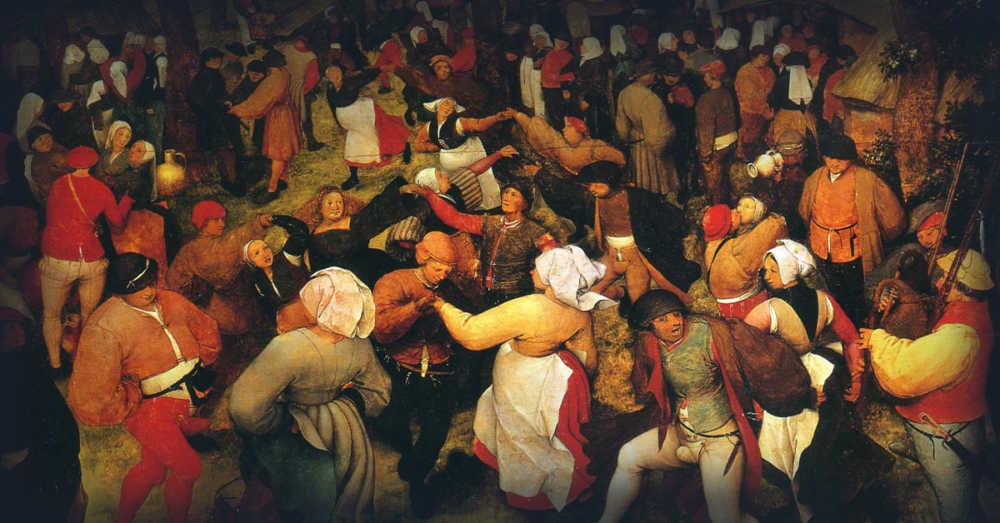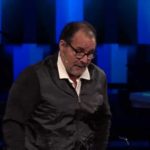We run our website the way we wished the whole internet worked: we provide high quality original content with no ads. We are funded solely by your direct support. Please consider supporting this project.

Can you have an Anabaptist Mega-Church?
Several times over the last few years I’ve heard statements like this: “Boyd may embrace an Anabaptist theology, but his church (Woodland Hills) cannot be, by definition, an Anabaptist church because an Anabaptist church can’t be a mega-church.” I’ve heard similar things about our sister church, The Meeting House, in Toronto Canada. The reasoning behind these statements seems to be that in Anabaptist theology, the church is a community of disciples who model the love of God to the world by how they love one another and share life together. Moreover, Anabaptist theology has always stressed that spiritual maturity is impossible apart from the discipline of living in community with other disciples. This is impossible to do with a group of mostly strangers who gather together to listen to a sermon and worship together once a week. Unless a group of people are doing the fifty-seven “one another’s” that are commanded in the NT (e.g. “love one another,” “submit to one another”), the group is not a “church” by the standards of Anabaptist theology (and, I would add, by the standards of the NT).
Ironically, those who argue mega-churches can’t be Anabaptist churches are assuming, in the process of raising this objection, a non-Anabaptist definition of church as a weekend gathering. If the leadership of Woodland Hills thought that our “mega” weekend gathering was “the church,” the objection would indeed be valid. But we don’t think this, precisely because this would be a very non-Anabaptist position to assume!
We rather view our “mega” weekend gathering to be nothing more than that – a weekend gathering. It’s a large event that provides us with an opportunity to teach the Gospel and to begin to make disciples by drawing weekend attenders into our much smaller house churches. The event, therefore, isn’t the church, but simply a means of building the church. In this sense, it would be more accurate to see Woodland Hills as a network of house churches that happens to have a “mega” week event than it is to see us as a mega-church.
At Woodland Hills, our house churches consist of groups of 30 or so people from the same region who gather together on a weekly basis for several hours for fellowship, worship and ministering to one another and who meet with two or three others once a week for the purpose of discipleship and accountability. Some folks in these house churches continue to attend the weekend event while others do not, and the leadership of the church is okay with this either way so long as a person’s participation in the house church and accountability groups is not compromised.
The point I’m making goes far beyond the question of whether or not a mega-church can be considered Anabaptist. Multitudes of people today are beginning to realize that the kingdom is about forming passionate disciples who live in authentic community with one another, not about attracting a large crowd to a weekly event. As people wake up to this truth, many are beginning to distain the mega-church phenomenon. In fact, I’ve heard of several pastors of mega-churches who woke up to the true nature of the church and who have consequently either resigned from their churches or who have simply shut their churches down. I for one think this unfortunate, for you’re forgoing an opportunity to influence a large group of people in the direction of the kingdom.
What Woodland Hills Church (as well as and the Meeting House in Toronto and other mega-Anabaptist Churches that may be out there) demonstrates is that we don’t have to chose between embracing the church as community, on the one hand, and holding a large weekend gathering, on the other. There’s nothing intrinsically anti-kingdom about large gatherings. After all, large crowds flocked to Jesus, and the early Christians in Jerusalem met in large groups in “Solomon’s porch” (Acts 5:16-19). The key, however, is to always remind people that the primary expression of church is not the large group, but the smaller communities that come together in houses to share life, study the word, worship and minister together.
So, I would argue that you can have a mega-Anabaptist church, but only if you continually proclaim that the church is not defined by the “mega” weekend event, but by the authentic kingdom communities you create out of this event.
__ __ __
art: “The Wedding Dance in the open air”
by: Pieter Bruegel the Elder
date: c.1566
Category: General
Tags: Anabaptists, Community, House Churches, Kingdom Living, Mega-Churches, The Meeting House, Woodland Hills Church
Topics: The Church
Related Reading

On Hacking Off Our Own Limbs
Nadia Bolz Weber posted this weekend on The Sarcastic Lutheran, and we thought you’d enjoy her thoughts on hacking off our own limbs for Jesus. Don’t worry, you won’t have the urge to find an axe after you read this. Or at least not a real axe. From the post: And here’s the thing…that story? The…

Eustace the Dragon at Woodland Hills Tonight!
Sorry about the last minute notice, but if you’re in the Twin Cities you should join us tonight for a coffee house concert with Eustace the Dragon at Woodland Hills. They’re playing from 7-9. Coffee and light refreshments will be served. You won’t want to miss this! Check them out on their SoundCloud page if…

How God Changes the World
All who place their trust in Jesus look forward to a day when he will return and fully establish the kingdom of God. When this happens, Scripture promises that everything will change. There will be no more sickness, death, hunger, natural disasters, violence, fear, heartaches, sin, or evil. There will be no more racism, nationalism,…

Podcast: What if I Don’t Like Church?
Greg and Dan talk about what to do when we do not like church. http://traffic.libsyn.com/askgregboyd/Episode_0450b.mp3

Following Jesus from the Margins
D. Sharon Pruitt via Compfight Kurt Willems posted a reflection today entitled From the Margins: Following Jesus in a post-Christian culture. I hope everyone will read this. It’s a perspective from the anabaptist tradition that finds inspiration from the same data that evangelicalism finds alarming. May we all follow Jesus from the margins and offer…

The Heavenly Missionary
In his second sermon introducing the ideas in Crucifixion of the Warrior God, Greg suggests a metaphor to help us frame the things we encounter in the Old Testament that seem at odds with the God we find in the life and death of Jesus. God is a heavenly missionary who stoops to accommodate our…
